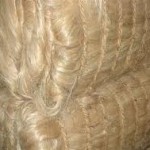Growing awareness and concern over the protection and care of the environment is now becoming more intense worldwide that ‘going natural, going green’ is deeply encouraged by environment advocates in the Philippines.
Propagating eco-friendly materials like abaca which is also known as Manila hemp in greater need and importance to industrial products down to home furnishings and house wares, fashion and its accessories, food packaging, apparels and other items would make the country’s abaca industry resurrects to life.
The Fiber Industry Development Authority (FIDA) regional office here in Bicol is confident the country’s abaca industry will continue to compete internationally and maintain Philippine’s strong foothold in the global market.
Bicol FIDA regional chief Mary Anne Molina said that abaca, as a renewable resource, does not pose any harm to the environment being hundred percent biodegradable.
Putting the advocacy to practice, based on the Montreal and Kyoto Protocol, practically impose on participating countries the use of biodegradable materials to protect the ozone layer and tackle the issue of global warming and greenhouse gas emission.
The use of abaca fiber, instead of glass fiber, brought about primary energy savings of 60 percent, thus significantly reducing carbon dioxide emission.
Car manufacturer, Chrysler-Daimler, according to Molina has cited the very good ecological balance of abaca combined with its excellent technical properties similar to those of glass fiber, the material previously used in the underbody protection of the car.
The development of new end-use for abaca fiber in composite applications for the automotive industry in Germany contributed to boost the demand for the fiber.
Molina said that with the stricter policies against dumping of synthetic fishnets and cordage materials in open sea as enforced by most European nations, users are returning to the use of natural biodegradable materials like abaca fiber.
Other car manufacturing companies in the European Union (EU) are expected to use natural fibers as material for their car parts in compliance with Regulation of the European Parliament.
In the United States, the movie-making industry is reportedly using abaca rope which, unlike synthetics, does not reflect when exposed to klieg lights.
Synthetic ropes may have some technical advantages but abaca has qualities that meet the needs for special purposes specifically for oil drilling, navies, merchant shipping and construction.
Although abaca pulp is priced higher than wood pulp, its higher substitution ratio of four is to one and better qualities in the production of specialty papers like tea bag, meat and sausage casings, currency papers, metalized papers, cigarette papers, filters, hi-tech capacitor papers and other non-wovens and disposables make it more attractive.
Abaca had also entered the cosmetic and wellness industries as cosmetic manufacturers also makes use of abaca enzymes in the production of natural, organic, hand-crafted skin care products like abaca soap and lotion which reportedly have anti-aging and therapeutic properties and are now exported abroad.
The construction industry is also making use of abaca for light structural walls, insulation materials, floor and wall coverings and roofing while apparel makers use it as raw material component for organic denims.
FIDA, Molina said, wanted to maximize the popularity of Philippine abaca with the agency’s commitment to sustain and enhance the demand in both the domestic and international communities under its major thrusts being undertaken in trade promotion, market information exchange and institutional linkages.
Trade promotion is aimed to expand the market base for the Philippine abaca industry through participation in local and international trade fairs and exhibits, multi-media promotions and fashion shows.
The country’s current abaca producer are Bicol and Eastern Visayas while FIDA maintains laboratories in Sorsogon City; Virac, Catanduanes; Leyte and Davao City for tissue culture and disease-free abaca cultivars.
